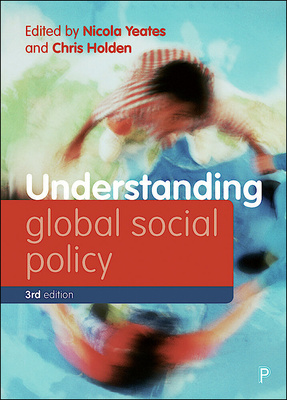In November 2021, thousands of governmental and other political actors met in Glasgow, UK, and failed to produce an effective response to impending environmental catastrophe. At the same time, third doses (‘boosters’) of vaccines against COVID-19 were being distributed to the citizens of the Global North while millions in the Global South were still waiting for their first jab.
What do climate change and the COVID-19 pandemic have in common?
Both are instances of global social problems. Such problems are, according to George and Page, those whose causes lie in global processes, which are difficult to resolve unilaterally or govern purely at national level, and which have generated responses by global policy actors working through multilateral forums and institutions. As global social problems, both climate change and the pandemic have seen significant global policy responses, yet both illustrate the difficulties of constructing forms of global governance that are adequate to deal with the scale of the problem. In this, they are perhaps more dramatic than, but not substantially different from, mass youth unemployment, industrial disasters, scarce water supplies, the depletion of care workforces, widespread hunger and poverty, gaping inequalities and a plethora of other problems the causes and solutions of which lie at least partly at the global level.
These are all real-life examples of problems featuring in the new third edition of Understanding Global Social Policy, co-edited by us. Written by a team of leading scholars, lecturers and researchers from across the world, this latest edition represents an extraordinary collective effort to grasp the main issues, dimensions and realities of the complexities of global social policy as a field of academic study and research and as a field of political practice by social actors, including key developments over the eight years since the second edition was published, AND to present all of this in an accessible, lively and student-oriented way.
Eight years might not seem like a long period of time. Yet the challenges to effective global social governance have only intensified over that time. Widening global inequalities, right-wing populism, fundamentalism and extremism, widespread conflict, the ongoing austerity legacies of the global financial crisis some 15 years ago, and shifts in the geopolitical landscape have all presented new challenges. The trend towards the continued deepening of neoliberal prescriptions for the world economy has run alongside contradictory ones of growing nationalism, the embrace of economic protectionism, and the prospect of a second Cold War. These trends bring into sharp focus the need for more effective forms of global social governance and the need to better understand the ‘new’ (and to many billions of people, extremely harsh) social realities of the rapidly evolving global social order. They also expose the urgency of pro-egalitarian transformative social change that embodies not just a global ethic of responsibility and justice but a global ethic of care, and they underscore the relevance and importance of the major global agreement of the early 21st century – not to leave anyone behind, anywhere (the 2030 Agenda for Sustainable Development).
Alongside these global social changes, global social policy research and scholarship itself has been developing rapidly. New fields of empirical research have opened up since the second edition of the book, and there has been substantial development of new conceptual and theoretical work. These diverse developments are reflected in the design of this third edition. We have responded to feedback from readers and users of previous editions and have expanded the book’s coverage of the global social policy terrain through the inclusion of seven new and specially commissioned chapters. These chapters focus on global social policy theory and global social justice, on the ‘existential’ issues of global climate change policy and of water, energy and food, and on ‘horizontal’ or ‘cross-cutting’ issues that run through all global social policies – such as migration, gender and young people. The original chapters have also been fully updated to reflect major developments in the fast-changing world of global social policy.
Understanding Global Social Policy is designed as a resource guide, a companion to students and scholars of this interdisciplinary field of academic enquiry and political practice. We have therefore retained key pedagogic features to support teaching and student learning: overview and summary boxes bookending each chapter; key questions for discussion; follow-up activities; and further reading and resources for those readers wishing to explore in greater depth what it means to locate human welfare within a global framework of social policy analysis and action.
Designed as the perfect guide for curious students as well as all those seeking greater depth of conceptual, theoretical and empirical understanding, we are proud of the new edition of this textbook and hope it will provide a great study companion for understanding and responding to the challenge of pursuing social justice in a globalising and increasingly unequal world.
Nicola Yeates is Professor of Social Policy in the Department of Social Policy and Criminology at The Open University. Chris Holden is Reader in International Social Policy in the Department of Social Policy and Social Work at the University of York.
This article is highlighted in the Development Studies Association Latest News: The Open University – April 2022.

Understanding Global Social Policy edited by Nicola Yeates and Chris Holden is available to order on the Policy Press website here.
Bristol University Press newsletter subscribers receive a 35% discount – sign up here.
Follow Transforming Society so we can let you know when new articles publish.
The views and opinions expressed on this blog site are solely those of the original blog post authors and other contributors. These views and opinions do not necessarily represent those of the Policy Press and/or any/all contributors to this site.
Image credit: ~UserGI15633745


